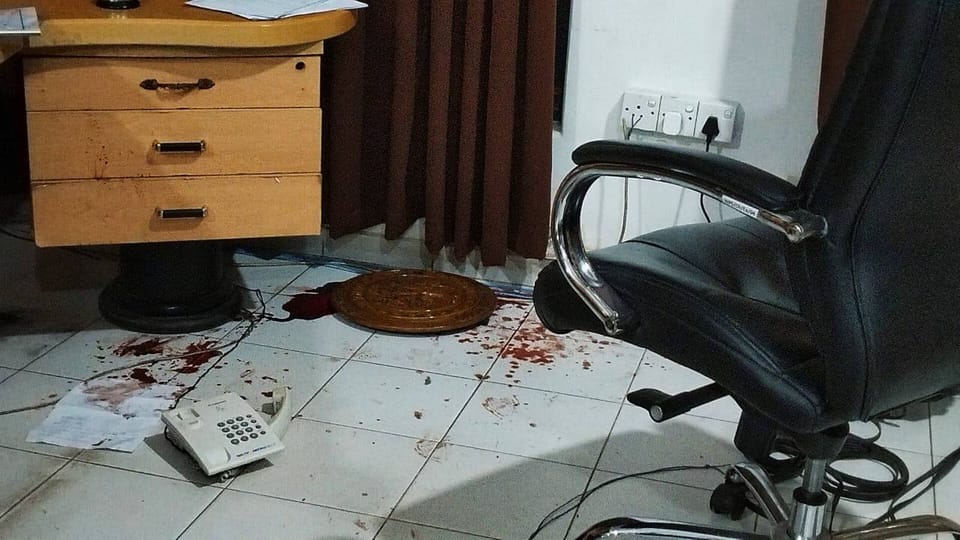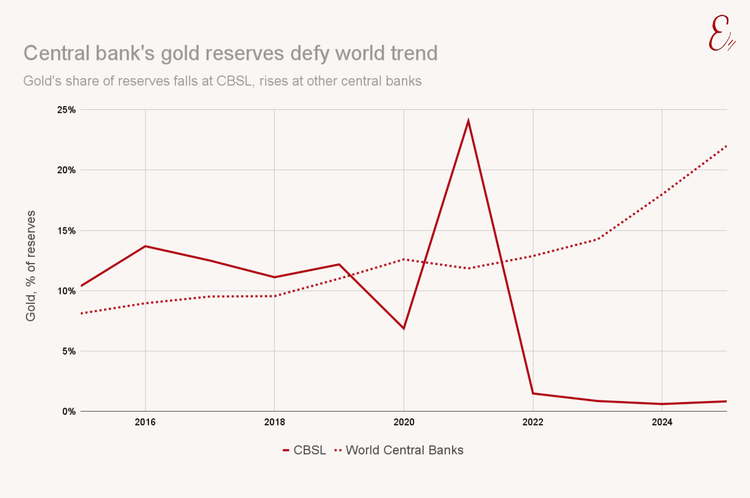
Yesterday, police detained the suspected shooter in the Weligama council chairman’s murder under the Prevention of Terrorism Act. Defence Minister Anura Kumara Dissanayake signed the detention orders for 90 days.
Over the past few days, the murder, and the subsequent search for the killer, gripped the nation. Last week, a masked gunman entered the Weligama Pradeshiya Sabha and murdered its chairman, Lasantha Wickramasekara, at his desk. He then escaped on a motorcycle with an accomplice. The gunman’s bullet struck in broad daylight: it was public day and Wickramasekara was meeting his constituents.
38-year-old Wickramasekara entered politics seven years ago, with the support of his patron, Justin Galappaththi, a veteran Matara MP. He contested the pradeshiya sabha elections in 2018 but lost.
Public Security Minister Ananda Wijepala immediately raised Wickramasekara’s history of criminal charges in parliament following his death. The minister called him an “underworld criminal” before proceeding to cite six court cases against him.
Opposition parliamentarians condemned Wijepala’s statement as tensions rose. “If a public representative cannot conduct his duties on ‘public day’ within the Pradeshiya Sabha, then what has happened to the national security in the country?” questioned opposition leader Sajith Premadasa.
Wijepala’s statement — on Wickramasekara’s six ongoing cases — weren’t “unknown” by the public, says Sunil Watagala, Deputy Minister of Public Security. “He disclosed that information because Premadasa and his team began troubling about the murder. We said we don’t accept the gunman’s killing. But stated the fact that Wickramasekara had six cases after dealing with the underworld. That’s not interfering with the investigation, that’s the fact we had to say.”
“Although he had charges against him, he never served prison time,” says Rehan Jayawickreme, SJB’s Weligama organiser. Wickramasekara spent a year and a half in jail without bail, on a firearms possession charge — which Jayawickrama believes were planted.
“He was never convicted,” says Jayawickreme.
Wickramasekara did, however, serve a suspended sentence, generally applicable for minor crimes and enforceable only if the crime is committed again. Jayawickreme says it was for unlawful assembly, other politicians claim it was for narcotics. Election law wouldn’t have prevented Wickramasekara from contesting in elections with a suspended sentence.
According to Jayawickreme, Wickramasekara was a school mate of notorious gang leader Nandun Wickramaratne alias Harak Kata. This was manipulated to paint Wickramasekara as a gang leader himself, alleges the SJB Weligama Organiser.
Jayawickrama also believes that Wickramasekara was targeted because he was attempting to crack down on extortion rackets in Mirissa, which angered underworld dons in Dubai.
But he feels that the government also “let it [murder] happen” because Wickramasekara was a “headache” for the ruling party. As a result of alliances SJB made with other opposition parties, the Weligama Pradeshiya Sabha was among the few that did not fall to the NPP.
Jayawickreme suggested that Wickramasekara’s death could’ve been politically sanctioned, as he requested police protection but never received it.
Wickramasekara wrote to the IGP requesting security less than two months ago, concerned about threats he had received. Local police were inquiring into the threats, and Wickramasekara’s security, says police spokesperson F.U. Wootler. They had asked the chairman to keep them informed of his movements in the interim. “But he didn’t keep the police informed,” said Wootler.
Jayawickrama believes the police “chose to ignore it.”
Cursed council
Wickramasekara’s demise puts the Weligama Pradeshiya Sabha in a fix — again.
Manjula Gajanayake, an election watchdog, worries that the new vacancy is going to create “world war two” in the council.
Earlier this year, the NPP won 22 seats, but the opposition, with 23 seats, jointly fielded Wickramasekara for the chairman. During a vote for the chairman in June, a crowd disrupted proceedings. Two NPP councilors were allegedly abducted near Kananke, and the party cried foul. To this day, no one has been arrested, according to the Kananke police.
The following month, NPP councillor, Tharaka Nanayakkara’s house was shot at.
Wickramasekara finally seized control of the council and ran it until his untimely demise. The council was happy with their chairman, says Nanayakkara, who worked with Wickramasekara in the council. “He was dedicated to public service.”
In September, a Matara court issued an arrest warrant for Wickramasekara after he failed to appear in a case where he allegedly threatened Nanayakkara. He was granted bail two days later.

The SJB must replace Wickramasekara’s position in the council, which the Election Commission will then gazette. Simultaneously, within six weeks, the local government commissioner for the Southern Province must hold a confirmation vote on the new councilor. If the commission’s gazette isn’t out by then, both sides — the NPP and opposition — will each have exactly 22 members.


